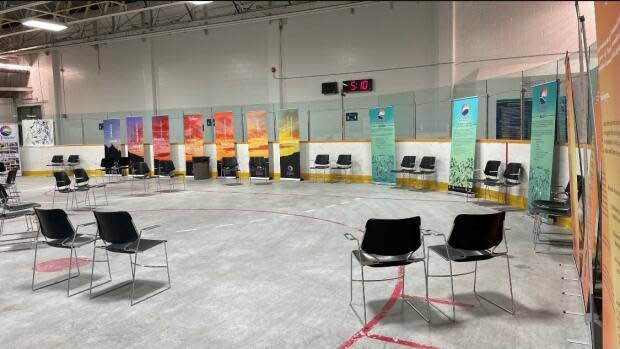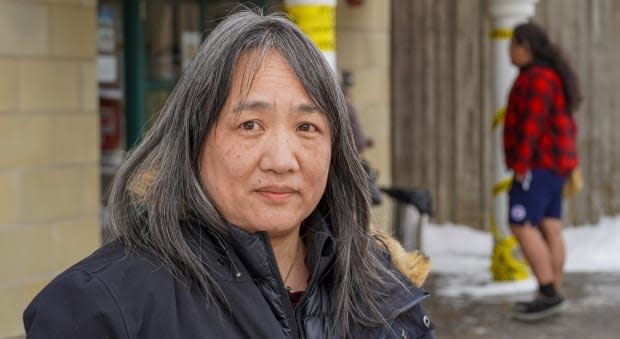Vaccine rollout for Indigenous community expands

The campaign to get the COVID-19 vaccine into the arms of Ottawa's Indigenous community has been so successful, it's ramping up with a move to a larger facility and expanding eligibility to adults 50 years and older.
The St-Laurent Complex at 525 Côté St. is equipped to give the jab to 300 people a day, compared to the original vaccination site at the Wabano Centre for Aboriginal Health on Montreal Road, which was vaccinating a daily maximum of 90 patients.
The new vaccine clinic saw its first patients on Monday and will continue to be staffed by Indigenous health workers.
"We outgrew the space," said Dr. Sarah Funnell, a First Nations public health specialist with Ottawa Public Health, which partnered with the Wabano Centre for the vaccine drive.
Funnell said increased demand for the vaccine made the move to larger quarters necessary. She said that's encouraging because compared to the general public, Indigenous peoples "are most at risk of bad outcomes such as hospitalization and death and serious health consequences" if they contract COVID-19.
"That's why it's important to vaccinate Indigenous people as a priority," said Funnell.

The federal government and health authorities have designated the Indigenous population as a priority in the vaccine rollouts. The age of eligibility for Indigenous adults was expanded to those 50 and older this week.
Funnell said First Nations, Métis and Inuit have a history of inadequate access to health care and are more likely to live in impoverished circumstances, putting them at an increased risk.
"COVID loves to spread in crowded areas," said Funnell, "Indigenous people represent at least 25 per cent of those who live in shelters ... and [they] are more likely to live in crowded homes or experience homelessness."
Indigenous elders who already received the first dose of the vaccine at the Wabano Centre, will be able to get their second there. All new doses will be administered at the St-Laurent Complex.

Demand for the vaccine is also high at the Akausivik Inuit Family Health Team in Vanier, a medical centre that caters to the region's large Inuit population.
Executive director Connie Siedule said she often needs to justify why the Indigenous community was prioritized by the federal government as a priority group.
"We do get a lot of questions about why [we are] included in the Phase One priority roll out," said Siedule, who hopes a greater knowledge of the health challenges Indigenous people face will lead to understanding.

"Because of the lower life expectancy for Inuit, that is anywhere from 10 to 17 years less than the general Canadian population ... the rates of lower respiratory tract infections that are among the highest anywhere," said Siedule.
OPH's Funnell added that making Indigenous communities a high priority benefits everyone.
"If we're able to immunize those that are most at risk of getting sick ... we'll have a better chance of decreasing the overall transmission and will be a bit closer to getting back to what our new normal will be."

